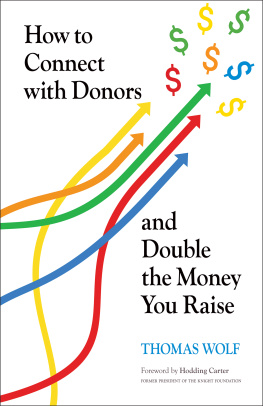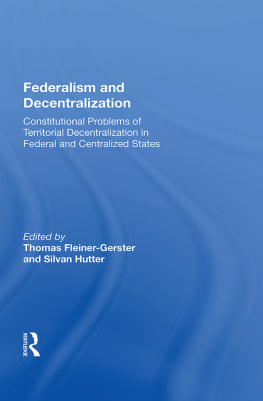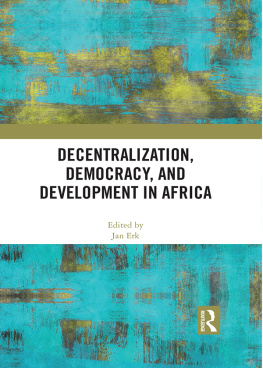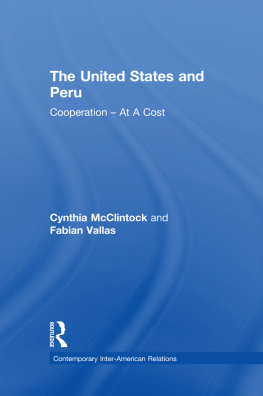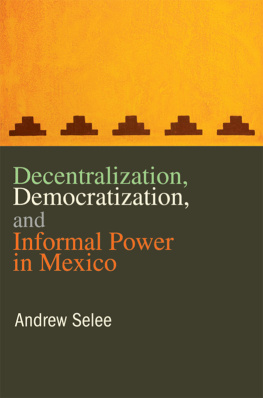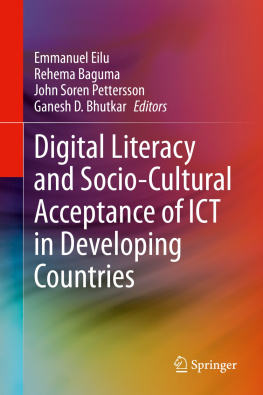Gregory D Schmidt - Donors And Decentralization In Developing Countries: Insights From Aid Experience In Peru
Here you can read online Gregory D Schmidt - Donors And Decentralization In Developing Countries: Insights From Aid Experience In Peru full text of the book (entire story) in english for free. Download pdf and epub, get meaning, cover and reviews about this ebook. year: 1989, publisher: Avalon Publishing, genre: Politics. Description of the work, (preface) as well as reviews are available. Best literature library LitArk.com created for fans of good reading and offers a wide selection of genres:
Romance novel
Science fiction
Adventure
Detective
Science
History
Home and family
Prose
Art
Politics
Computer
Non-fiction
Religion
Business
Children
Humor
Choose a favorite category and find really read worthwhile books. Enjoy immersion in the world of imagination, feel the emotions of the characters or learn something new for yourself, make an fascinating discovery.

- Book:Donors And Decentralization In Developing Countries: Insights From Aid Experience In Peru
- Author:
- Publisher:Avalon Publishing
- Genre:
- Year:1989
- Rating:3 / 5
- Favourites:Add to favourites
- Your mark:
- 60
- 1
- 2
- 3
- 4
- 5
Donors And Decentralization In Developing Countries: Insights From Aid Experience In Peru: summary, description and annotation
We offer to read an annotation, description, summary or preface (depends on what the author of the book "Donors And Decentralization In Developing Countries: Insights From Aid Experience In Peru" wrote himself). If you haven't found the necessary information about the book — write in the comments, we will try to find it.
Gregory D Schmidt: author's other books
Who wrote Donors And Decentralization In Developing Countries: Insights From Aid Experience In Peru? Find out the surname, the name of the author of the book and a list of all author's works by series.
Donors And Decentralization In Developing Countries: Insights From Aid Experience In Peru — read online for free the complete book (whole text) full work
Below is the text of the book, divided by pages. System saving the place of the last page read, allows you to conveniently read the book "Donors And Decentralization In Developing Countries: Insights From Aid Experience In Peru" online for free, without having to search again every time where you left off. Put a bookmark, and you can go to the page where you finished reading at any time.
Font size:
Interval:
Bookmark:


52 Vanderbilt Avenue, New York, NY 10017
2 Park Square, Milton Park, Abingdon, Oxon OX14 4RN
Product or corporate names may be trademarks or registered trademarks, and are used only for identification and explanation without intent to infringe.
Schmidt, Gregory D., 1952
Donors and decentralization in developing countries: insights from AID experience in Peru/Gregory D. Schmidt.
p. cm.(Westview special studies in social, political, and economic development)
Bibliography: p.
Includes index.
ISBN 0-8133-7696-3
1. Decentralization in governmentPeru. 2. PeruEconomic policy. 3. Economic assistance, AmericaPeru. I. Title. II. Series.
JL3420.S8S36 1989
354.8507'3dc20
CIP
Consultant, World Bank
La Paz, Bolivia
Font size:
Interval:
Bookmark:
Similar books «Donors And Decentralization In Developing Countries: Insights From Aid Experience In Peru»
Look at similar books to Donors And Decentralization In Developing Countries: Insights From Aid Experience In Peru. We have selected literature similar in name and meaning in the hope of providing readers with more options to find new, interesting, not yet read works.
Discussion, reviews of the book Donors And Decentralization In Developing Countries: Insights From Aid Experience In Peru and just readers' own opinions. Leave your comments, write what you think about the work, its meaning or the main characters. Specify what exactly you liked and what you didn't like, and why you think so.

